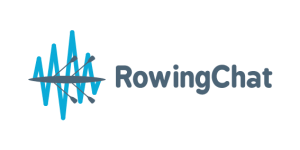Faster Masters Rowing Radio – the podcast for masters rowers. Tips, advice and discussion from Marlene Royle and Rebecca Caroe.
Support this show with a donation
https://fastermastersrowing.com/podcast
Timestamps
01:00 This Past Week – what we do to advocate for masters rowing – who is the fund raising group in your club?
04:00 Corporate rowing if you’re interested in a discussion – get in touch.
05:00 Marlene’s rigging dock talk
07:00 book of the Month with Jess di Carlo is Olaf Tufte’s Skjerpins.
https://www.ark.no/boker/Olaf-Tufte-Skjerpings-9788241953811
This literally means “sharpening” or more prosaically “Get a grip – you can always get better”.
It’s in Norwegian and Jess used Kindle translate function to read it.
10:30 Olaf is strong on visualisation and spent 10 minutes working on the first stroke before the Beijing Olympic final.
15:00 Hiking with his family – he found himself in trouble and said ‘get the breathing right and the head will follow’.
21:00 Start rowing slowly and rebuild the stroke from the basics after a set back.
22:30 Rest and recovery
Peaks require a rest and reset before another peak event.
Recover – between your sessions each week – between each is a recovery period.
Sleep is terrific for recovery as is nutrition and hydration.
Glycogen in your muscles fuels muscle action – heavy legs
26:30 Doing 2 sessions a day versus 2 days between sessions. Hard and easy days take planning.
28:30 Rest and sleep means 7-9 hours per day asleep. When you sleep your hormones are active. Maintain weight, mental sharpness and dehydration.
Interrupted sleep is a common issue for masters.
Naps are a useful tool to use.
30:30 Other types of rest include sports massage, sauna, contrast showers (hot and cold) all help flush your system,
Plan the rest days in a week’s schedule
Plan the rest weeks in an annual schedule.
Cross training can be a rest and a change too,
33:00 Heart Rate Variability measures the fluctuation of what is happening between your heart beats. Compares the sympathetic and parasympathetic nervous systems.
Different ways to track are available.
Get age group comparison data and personal day to day changes in your analytics.
High values mean you are more recovered.
35:00 Active Recovery is rest or sleeping an extra hour.
Simple ways to test your recovery.
Check your waking heart beat in the morning for 1 minute.
If it’s 10 beats higher than normal don’t do hard work that day or take a rest day.
37:00 Rebecca used to track using the Daily Diary from Harry Mahon
https://www.rowperfect.co.uk/how-useful-is-a-training-diary-for-rowing/
If it’s 5 beats higher than normal you could have a virus coming on. Err on the side of caution.
40:45 De-conditioning takes a long time. You have to stop training for a long time to get to lose your fitness. Two sessions a week are enough for fitness maintenance. Keep it low intensity.
Two sessions a week are enough for maintenance at low intensity
n
